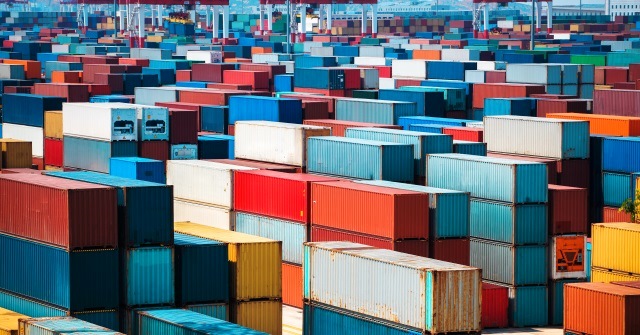Imports at the US’s major retail container ports should continue to see strong increases throughout the spring and summer as the nation’s economy improves, according to the monthly Global Port Tracker report released by the National Retail Federation and Hackett Associates.
“Consumers are spending more, and these import numbers show that retailers expect that to continue for a significant period,” NRF Vice President for Supply Chain and Customs Policy Jonathan Gold said. “This is a clear sign that the economy has long-term momentum regardless of month-to-month fluctuations. Whether it’s merchandise for store shelves or parts for U.S. factories, imports play a vital role in American prosperity.”
“Our view that imports will continue to be stable despite the uncertainties of the new administration’s trade policies remains unchanged,” Hackett Associates Founder Ben Hackett said. “Despite pre-election promises, there has been little real change in trade policy so far and little change is expected for the greater part of the year.”
Ports covered by Global Port Tracker handled 1.43 million Twenty-Foot Equivalent Units in February, the latest month for which after-the-fact numbers are available. That was a decrease of 14.3 percent from January as many Asian factories shut down for Lunar New Year, and down 7 percent from the same month a year ago. Coming after the winter holidays and before retailers stock up for summer, February is historically the slowest month of the year for imports. One TEU is one 20-foot-long cargo container or its equivalent.
March was estimated at 1.61 million TEU, up 21.5 percent from unusually low numbers last year, when Lunar New Year came a week later than this year. April is forecast at 1.59 million TEU, up 10.3 percent from last year; May at 1.68 million TEU, up 3.5 percent; June at 1.66 million TEU, up 5.3 percent; July at 1.71 million TEU, up 5.1 percent, and August at 1.74 million TEU, up 1.6 percent.
The first half of 2017 is expected to total 9.6 million TEU, up 7.3 percent from the first half of 2016. Cargo volume for 2016 totaled 18.8 million TEU, up 3.1 percent from 2015, which had grown 5.4 percent from 2014.
NRF has forecast that 2017 retail sales – excluding automobiles, gasoline and restaurants – will increase between 3.7 and 4.2 percent over 2016, driven by job and income growth coupled with low debt. Cargo volume does not correlate directly with sales because only the number of containers is counted, not the value of the cargo inside, but nonetheless provides a barometer of retailers’ expectations.
Source: NRF


























































